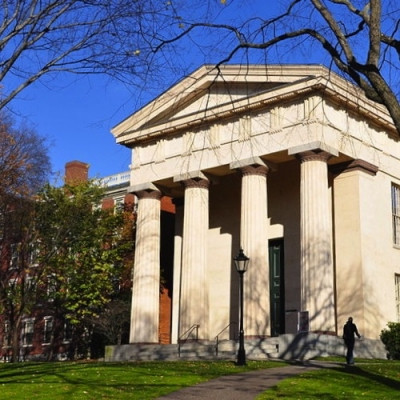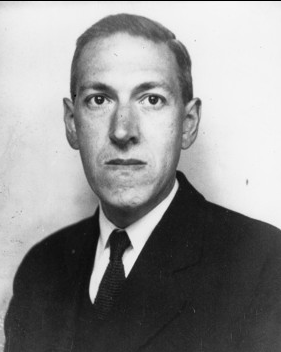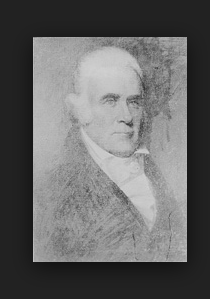Lovecraft’s Vicious Legacy as a Racist—Part 2
Tuesday, January 16, 2018
In addition to his fiction writing, H.P. Lovecraft published a political journal called The Conservative from 1915 to 1923. The following is from the journal’s second issue, from an article praising Birth of a Nation, a popular movie which praises slavery and depicts African Americans as lazy, violent, and unsuited for participation in democracy.
“The Negro is fundamentally the biological inferior of all White and even Mongolian races, and the Northern people must occasionally be reminded of the danger which they incur in admitting him too freely to the privileges of society and government…
GET THE LATEST BREAKING NEWS HERE -- SIGN UP FOR GOLOCAL FREE DAILY EBLASTBirth of a Nation is said to furnish a remarkable insight into the methods of the Ku-Klux-Klan, that noble but much-maligned band of Southerners who saved half of our country from destruction at the close of the Civil War. The Conservative has not yet witnessed the picture in question, but he has seen both in literary and dramatic form The Clansman, that stirring, though crude and melodramatic, story by Rev. Thomas Dixon, Jr., on which Birth of a Nation is based, and has likewise made a close historical study of the Ku-Klux-Klan, finding as a result of his research nothing but Honor, Chivalry, and Patriotism in the activities of the Klan. The Klan merely did for the people what the law refused to do, removing the ballot from unfit hands and restoring to the victims of political vindictiveness their natural rights …. Racial prejudice is a gift of nature, intended to preserve in purity the various divisions of mankind which the ages have evolved.”
H.P. Lovecraft would often criticize New York City, then, as now, one of the nation’s most diverse cities, with particular contempt due to its large minority population. The following is from a letter written in December of 1915. In it, Lovecraft expounds on the horror of New York City compared to Providence’s racially pure East Side, while also discussing the racial superiority of Anglo-Saxons and Teutonic (German) people:
“I hardly wonder that my racial ideas seem bigoted to one born and reared in the vicinity of cosmopolitan New York, but you may better understand my repulsion to the Jew when I tell you that until I was fourteen years old I do not believe I ever spoke to one or saw one knowingly. My section of the city is what is known as the East Side (nothing like New York’s East Side) and it is separated from the rest of the town by the precipitous slope of College Hill, at the top of which is Brown University. In this whole locality, there are scarcely two or three families who are not of original Yankee Rhode Island stock — the place is as solidly Anglo-American as it was 200 years ago.
Over on [Providence’s] West Side, it is very cosmopolitan, but the East Side child might as well be in the heart of Old England so far as racial environment is concerned. Slater Avenue school was near my home, and the only non-Saxons were n*****s whose parents work for our families or cart our ashes, and who consequently know their place. Imagine, then, my feeling on entering high-school and being confronted with the offscourings of Judea! True, some of the Jews were intelligent; in fact, there were some very brilliant scholars among them; but how could a child used to other children like himself find anything in common with hook-nosed, swarthy, guttural-voiced aliens? Repulsion was instinctive—I never denied the mental capacity of the Jew; in fact, I admire the race and its early history at a distance; but association with them was intolerable. Just as some otherwise normal men hate the sight or presence of a cat, so have I hated the presence of a Jew. Then, all apart from this instinctive feeling, I very soon formed a conviction that the Oriental mind is but ill adapted to mingle with the Aryan mind—that the glory of Israel is by itself. Oil and water are both desirable, but they will not mix.
And the more I study the question, the more firmly am I convinced that the one supreme race is the Teuton. Observe the condition in the British Isles. The English are wholly Teutonic, and therefore dominant. The southern Scotch and eastern Irish are also of that blood — they certainly surpass their fellows to the north and west. The Welsh, who have no Teutonic blood, are of little account. Had it not been for the Teutonic infusion at the beginning of the Dark Ages, southern Europe would have been lost. Who were these early French kings and heroes that founded French civilization? Teutons, to a man! It was the Teutonic might of Charles Martel that drove the Saracen Semite out of Gaul. Who were the Normans? Teutons of the North. It is pitiful to me to hear apostles of equity pipe out that other races can equal this foremost of all — this successor to the Roman race in power and virility.”
The all-knowing narrators in Lovecraft’s fiction echoed the author’s racism. The following description of a corpse is an excerpt from the 1922 short story Herbert West – Reanimator, when he introduced the now-commonplace zombie to American horror fiction.
“The Negro had been knocked out, and a moment’s examination showed us that he would permanently remain so. He was a loathsome, gorilla-like thing, with abnormally long arms which I could not help calling legs, and a face that conjured up thoughts of unspeakable Congo secrets and tom-tom poundings under an eerie moon. The body must have looked even worse in life—but the world holds many ugly things.”
Lovecraft’s brand of racism distinguished between inferior races, like Africans and Latinos, and competent yet alien races, like the Japanese the Jewish population of New York City that he hated. To Lovecraft, the acceptance of either would result in the ruin of Anglo or Teutonic (German) racial purity. This fear of interracial breeding informs much of his fiction writing, with the grotesqueries encountered by Lovecraft’s protagonists representing his fear of a “mongrelized” human race. The following excerpt from a letter in September of 1933 epitomizes that fear and distinction.
“The black is vastly inferior. There can be no question of this among contemporary and unsentimental biologists—eminent Europeans for whom the prejudice-problem does not exist. But, it is also a fact that there would be a very grave and very legitimate problem even if the negro were the white man’s equal. For the simple fact is, that two widely dissimilar races, whether equal or not, cannot peaceably coexist in the same territory until they are either uniformly mongrelised or cast in folkways of permanent and traditional personal aloofness. No normal being feels at ease amidst a population having vast elements radically different from himself in physical aspect and emotional responses. A normal Yankee feels like a fish out of water in a crowd of cultivated Japanese, even though they may be his mental and aesthetic superiors; and the normal Jap feels the same way in a crowd of Yankees.
This, of course, implies permanent association. We can all visit exotic scenes and like it—and when we are young and unsophisticated we usually think we might continue to like it as a regular thing. But as years pass, the need of old things and usual influences—home faces and home voices—grows stronger and stronger; and we come to see that mongrelism won’t work. We require the environing influence of a set of ways and physical types like our own, and will sacrifice anything to get them. Nothing means anything, in the end, except with reference to that continuous immediate fabric of appearances and experiences of which one was originally a part; and if we find ourselves engulphed by alien and clashing influences, we instinctively fight against them in pursuit of the dominant freeman’s average quota of legitimate contentment.”
Naturally, if a race wants to submit to the fantastic martyrdom of mongrelisation for an agonizing period of centuries, there will emerge a new composite race and culture whose members will have attained a new homogeneity—and therefore a new and satisfying equilibrium. But who cares to sacrifice himself for the sake of this hypothetical future race — a race as genuinely foreign and meaningless to him as the Peruvians would have been to the Greeks, or as the Tibetans are to ourselves? All that any living man normally wants—and all that any man worth calling such will stand for — is as stable and pure a perpetuation as possible of the set of forms and appearances to which his value perceptions are, from the circumstances of molding, instinctively attuned. That is all there is to life — the preservation of a framework which will render the experience of the individual apparently relevant and significant, and therefore reasonably satisfying. Here we have the normal phenomenon of race-prejudice in a nutshell —the legitimate fight of every virile personality to live in a world where life shall seem to mean something.
India was Lovecraft’s example of how a society would be destroyed by having multiple racial groups. The following excerpt, also from a letter from September of 1933, explains how the Indian subcontinent has been ruined by diversity:
“Wherever superior races have absorbed large doses of inferior blood, the results have been tragic. Egypt is one case – and India presents a still more loathsome extreme. The Aryans in India were too late in establishing their color-based caste system, so that today the culture of the Hindu is probably the most thoroughly repulsive on our planet. The more one learns about India, the more one wants to vomit. Aside from a few professional minds, the Indian people represent such an abyss of degeneracy that extirpation & fumigation would seem to be about the only way to make Hindoostan [India] fit for decent people to inhabit.”
Lovecraft often combined racism with class snobbery, viewing minority people as unsuited for any profession but manual labor, shown in a letter written in September of 1931 to fellow pulp fiction writer Robert Howard, creator of Conan the Barbarian.
“The Mexican habit of denying knowledge of English undoubtedly has its roots in an age-old peasant tradition — that of a furtive defensiveness which feigns ignorance and stupidity. It crops out in all well-marked peasant elements, and the peon psychology of the low-grade Mexican no doubt accentuates it to its highest possible degree. I can well imagine that the acme of exasperatingness in this line is reached when a white man “goes native” and adopts the ‘no sabe’ [don’t know in English] pose himself.”
Like many American intellectuals, Lovecraft was sympathetic to the rise of Adolf Hitler in Germany. In the following letter from September of 1933, he criticizes the excesses of Nazism while once again lamenting the diversity of New York City.
“As for the Nazis-of their crudeness there can be no dispute, yet in many ways the impartial analyst cannot help having a certain sympathy for some phases of their position. They are fighting, in their naive and narrow way, a certain widespread and insidious mood of recent years which certainly spells potential decadence for the western world – and one can't help respecting that intention, however ugly and even dangerous some of their methods may appear to be. Hitler is no Mussolini-but I'm damned if the poor chap isn’t profoundly sincere & patriotic. It is to his credit rather than otherwise that he doesn't subscribe to the windy flatulence of the idealistic "liberals" whose policies lead only to chaos & collapse.
Of course, this does not mean that the crudities of Hitlerism are to be copied. It is absurd to think that a man of complete Aryan culture ought to be squelched because he has a quarter-share of Semitic blood, or anything like that. But it is not absurd to feel that something ought to be done to keep expression true to the real psychology of the nation involved.
We really face the same problem in America-where the city of New York is virtually lost to the national fabric through its tragic and all-pervasive Semitisation. Our literature and drama, selected by Jewish producers & great Jewish publishing houses like Knopf, and feeling the pressure of Jewish finance and mercantile advertising, are daily getting farther and farther from the real feelings of the plain American in New England or Virginia or Kansas; whilst the profound Semitism of New York is affecting the "intellectuals" who flock there and creating a flimsy and synthetic body of culture and ideology radically hostile to the virile American attitude. Someday I hope that a reasonably civilized way of getting America's voice uppermost again can be devised.
Not that I would advocate violence – but certainly, I can't regard the Nazis with that complete lack of sympathy shown by those who take popular newspaper sentiment at face value. By the way — it's hardly accurate to compare the Jewish with the Negro problem. The trouble with the Jew is not his blood — which can mix with ours without disastrous results — but his persistent and antagonistic culture-tradition. On the other hand, the negro represents a vastly inferior biological variant which must under no circumstances taint our Aryan stock. The absolute color-line as applied to negroes is both necessary and sensible, whereas a similar deadline against Jews (though attempted by Hitler) is ridiculous.”
Lovecraft would again defend Nazism in a letter from November of 1933 to his protégé J. Vernon Shea, who would later edit several short story collections of Lovecraft’s writing
“Objections to Hitler — that is, the violent and hysterical objections which one sees outside Germany —seem to be based largely on a soft idealism or ‘humanitarianism’ which is out of places in an emergency. This sentimentalism may be a pleasing ornament in normal times, but it must be kept out of the way when the survival of a great nation hangs in the balance. The preservation of Germany as a coherent cultural and political fabric is of infinitely greater importance than the comfort of those who have been harmed by Nazism – and of course, the number of sufferers is negligible as compared with that of communism’s victims. …. Your hatred of Nazism appears to me to be a matter of idealistic emotion unsupported by historic perspective or by a sense of the practical compromises necessary in tight places. Emotion runs away with you.”
Related Slideshow: Legacy of Racism in New England
Institutions around the country are currently addressing whether to acknowledge -- or not -- individuals whose past racist views are now being subject to present political pressure, whether it's Woodrow Wilson Hall at Princeton University, renaming Byrd Stadium at the University of Maryland, to renaming Jefferson-Davis Highway in Virginia.
In New England, a number of once prominent figures in the region's history are causing members of the community to revisit how a racist history plays a part in having a role in today's society.
Related Articles
- Lovecraft’s Vicious Legacy as a Racist—Part 1
- LIVE: The Night Ocean, A Novel Delving Into the Secret Life of H.P. Lovecraft
- Narragansett Beer Distances Itself From Lovecraft’s Racist Views
- H.P. Lovecraft Walking Tour Returns to Providence for 9th Year
- Narragansett Beer Honors H.P. Lovecraft with New Release
- Rickman’s The Big View - “Civility”
- “Rickman’s Big View” - Weekly Video Opinion - Why Do GOP Want to Reverse the Clock?
- Rickman’s The Big View - Offers Reward for Identifying Graffiti Artists
- Rickman’s The Big View - Trump and North Korea
- Rickman’s The Big View - Trump and Nazis
- Rickman’s Big View- Healthcare
- Thursday on LIVE: Rickman, Child and Family, Providence Kayak Co. & Pangea App
- Raimondo’s Black History Month Comments Ripped by Former State Rep Rickman
- Stages of Freedom Rickman Joins LIVE to Discuss Black History Month
- GoLocal LIVE Launches “Rickman’s Big View” - Weekly Live Opinion at 4 PM Every Thursday
- Rickman’s Big View - “The Complex World of Schools, War, and Segregation”
- ABC6’s “In The Arena” - Violet, Rickman, Paolino and Fenton
- Rickman’s The Big View - Failed Schools
- Rickman’s Big View - Guns, Guns and More Guns
- Rickman’s Big View - Sexual Harassment
- Rickman’s Big View - Tax Reform is Not
- Rickman’s Big View - America’s Endless “Native American” Disrespect
- Rickman’s Big View - The Challenges Facing RI’s Children
- Rickman’s Big View - “Creatures of Their Times”
- ABC6’s “In the Arena” - Paolino, Rickman, Stenhouse, Miller and Mancuso
- National Assoc. of Black Law Enforcement Officers to Honor Rickman, Watson
- Rickman’s Big View - Trumpcare Chaos
- ABC6’s “In the Arena” - Brawl on the PawSox with Dufault, Fenton, Stenhouse & Rickman
- Rickman’s Big View: Time to Act to Control Guns in America
- Rickman’s Big View - Preserving Providence


_360_360_90.jpg)







